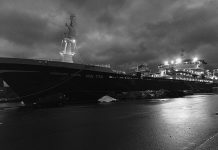By Shinovene Immanuel | 4 October 2019
NAMIBIA’S Anti-Corruption Commission (ACC) is investigating allegations that fishing quotas worth N$150 million donated by Namibia to the Angolan government were hijacked by Namibian politicians and their cronies in both countries.
Those under scrutiny in Namibia include a senior manager at Investec Asset Management, Ricardo Gustavo. Also under investigation is the state-owned firm National Fishing Corporation of Namibia (Fishcor) and its associates.
Two Namibian ministers and a former Angolan minister are also implicated. The investigation is understood to centre around a bilateral agreement between Namibia and Angola signed in 2014.
Politicians, their friends, relatives and business partners allegedly profited from reselling fish quotas to international fishing companies at market rates.
It is alleged that profits from the transaction were siphoned to offshore companies, including tax havens in Mauritius and Dubai.
“Money started flowing back into Namibia through various companies that can be traced to relatives of ministers, business people and trusts controlled by politicians,” said an official familiar with the matter.
The total amount under investigation by Namibian authorities could be as high as N$500 million.
It is not clear why the Namibian government gave fishing rights and quotas to Angola, which has its own coastline and is wealthier in terms of marine resources, oil and on-shore minerals.
BROADENING THE NET
Officials indicated to The Namibian last week that the investigation is at an advanced stage, and “very sensitive”.
They said the police and the Financial Intelligence Centre are also involved.
“The FIC is restricted by the Financial Intelligence Act, 2012 as amended, to deny or verify information of this nature,” Bank of Namibia’s spokesperson, Kazembire Zemburuka, said last week.
Approached for comment last week, ACC director general Paulus Noa told The Namibian he could not confirm if the commission is specifically investigating the Angolan case.
“There is a fisheries case under investigation, but I cannot tell if it relates to what you are asking about. We normally broaden our cases under investigation, depending on what we find. We broaden the net every day,” he said.
Noa said such investigations sometimes require the ACC to consult other state agencies.
“Those types of cases do not only involve corruption, but might include tax evasion, which is passed on to authorities such as the tax office,” he added.
QUOTAS AND QUESTIONS
In a statement in June 2017, Namibia’s minister of fisheries, Bernhard Esau, said the first area of cooperation between the two countries under the deal was the formation of a joint venture and quota allocation.
“I am happy to report that the fishing industries in our two countries have already established a joint venture between Namibia and Angola called Namgomar SA Pesca, which is mainly in the horse mackerel fishery,” Esau said.
Namgomar Pesca Namibia was registered in June 2014 in Namibia; its Angolan counterpart is Namgomar Pesca Angola.
Esau said in terms of the deal, Namibia gave Angola a quota of 25 000 metric tonnes of horse mackerel (also known as maasbanker) from 2014 to 2016.
It is believed the quota was then sold to private fishing companies. Fishing industry sources said a tonne was worth around N$3 000 in 2017, meaning the allocation would have been worth about N$70 million.
The total quota allocation from Namibia to this Angolan partnership between 2016 and 2019 could be as much as N$150 million.
The fisheries ministry did not respond to a question sent to it this week about the size of the quota Namibia gave to Namgomar Namibia.
The quota allocation agreement was co-signed by Esau and Angola’s former fisheries minister, Victória de Barros Neto.
Namibian officials allegedly found that Nangomar Namibia’s partner in Angola is a former minister in Angola.
Voice of America (VOA) reported in January this year that Angolan president, João Lourenço, removed Neto from the fisheries portfolio that month. Lourenço did not disclose his reasons.
HOOKS, LINES AND SINKERS
Company registration documents from Namibia’s Business and Intellectual Property Authority (Bipa) list Investec Namibia’s Gustavo as the only director of Namgomar Namibia, which reportedly sold its donated quota cheaply to other connected companies. The quota was later sold abroad at top-end prices.
According to those familiar with the matter, this was done so that those involved could benefit from the mark-up.
Namgomar faces possible investigations, such as tax evasion and kickbacks.
Fishcor, which is alleged to be a key part of the fishing investigation, is chaired by Investec Namibia’s managing director James Hatuikulipi.
Hatuikulipi is related to Esau’s son-in-law, Tamson ‘Fitty’ Hatuikulipi. Tamson married Esau’s daughter Ndapandula.
Hatuikulipi is also a close friend and business partner of justice minister Sacky Shanghala.
Gustavo did not answer questions sent to him on Sunday.
Fischor’s chief executive officer, Mike Nghipunya, told The Namibian this week that Fishcor had never had a relationship with Namgomar. He also answered on behalf of Hatuikulipi.
“I have been amazed by reports linking Fishcor to them in recent news. Fishcor has, however, dealt with Mermaria Seafood on a quota usage agreement, as we do with other players in the industry, and that’s where it ends,” he said.
The Namibian reported last week that businesswoman Sharon Neumbo filed a police case to investigate how N$60 million was stolen and paid to Mermaria Seafood, the same company Fishcor admitted to dealing with.
Neumbo blamed her partners – Icelandic firm Samherji HF – for illegally transferring the money.
Nghipunya insisted that “Fishcor and the whole group has never turned a blind eye to statutory obligations. Anything else that other companies are doing is beyond our knowledge, and we are not interested”.
*This article was produced by The Namibian’s investigative unit. Send us story tips via your secure email to investigations@namibian.com.na






